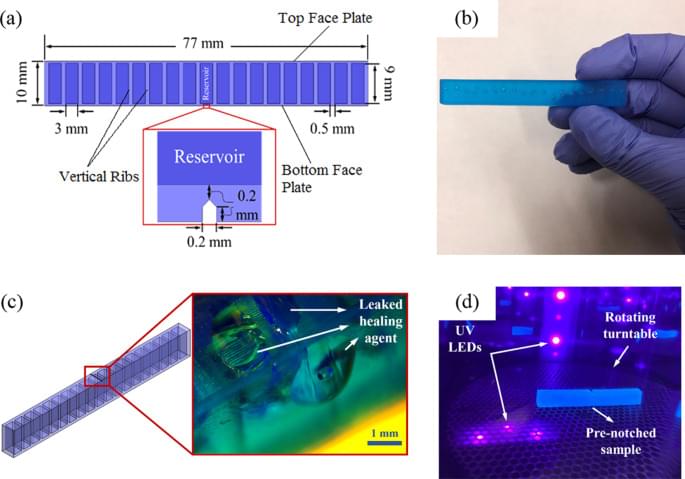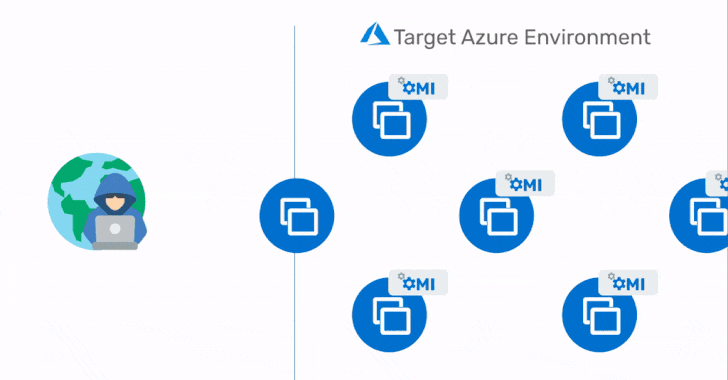One GPU’s trash is another GPU’s treasure.
It’s the RTX 3060’s turn to use recycled dies from its more powerful cousins.




Google runs a plethora of aspirational projects to explore one moonshot or another, but only some become real products. The company’s Project Loon internet balloons didn’t make the cut, having shut down in early 2021. However, one aspect of Loon has lived on to become its own Googley project. Google says it has used the Free Space Optical Communications (FSOC) links developed for Project Loon to beam hundreds of terabytes of data nearly five kilometers, no wires necessary.
Now under the purview of the company’s X labs, the little-known Project Taara is already enhancing connectivity in Kenya and India. Google says FSOC is essentially a fiber optic connection (up to 20 Gbps) without the wires, but it requires a direct line of sight. In Africa, Taara is now beaming data across the Congo River from Brazzaville in the Republic of Congo and Kinshasa in the Democratic Republic of Congo. After setting up the links over the past few years, Google is now sharing some of the project’s more impressive metrics.
Project Taara lead Baris Erkmen notes that Project Taara transmitted 700 TB over a recent 20-day period. This helped to back up wired connections in use by Google’s local partner Econet. Testing Taara in Africa makes sense because line-of-sight laser communication falls apart in a foggy locale like Google’s Bay Area home, and the fast-flowing Congo River has made connectivity in the region much more expensive.
Watch the full documentary on Vimeo on demand: https://vimeo.com/ondemand/339083
The study of consciousness needs to be lifted out of the mysticism that has dominated it. Consciousness is not just a matter of philosophy or spirituality. It’s a matter of hard science. It’s a matter of understanding the brain and the mind — a pattern structure made out of information. It’s also a matter of engineering. If we can understand the functionality of the brain, its neural code, then we can build the same functionality into our computer systems. There’s no consensus on what produces consciousness, but everyone regardless of metaphysical views can agree what it is like to be conscious. Given that consciousness is subjectivity, what consciousness is like is what consciousness is.
‘Mind’ and ‘Consciousness’ are two different but somewhat overlapping terms related to the phenomenality of our experiential reality. Different species have a variety of their biological information processors which unsurprisingly results in qualia diversity. All species live in their own unique sensory universes. There is “something it is like to be” an organism. The human brain, our biological “wetware,” has a fractal structure on many genetic and abstract cognitive levels. Information is “modus operandi” of consciousness.
If we are to reason for the non-dual picture of the world then quantum physics is directly linked to consciousness. The human brain is a physical organ that transmits and interprets electrochemical signals. Its biochemistry is certainly governed by quantum physical laws, and consciousness — which is clearly related to the functioning of the brain — must therefore be related to the quantum physical processes going on within the brain and in the cosmos at large. Research has shown that consciousness is non-local, a scientific way of alluding to a connection within a higher dimensional order. Matter has also been shown to be non-local, which hints that matter might be an expression of consciousness, emerging from the ‘Unified Field’ — the quantum layer of pure potentiality — the code layer beneath all dimensions where time and space are information.
Reality is fundamentally experiential. Nothing is real for us until perceived. A little while ago, the idea that our minds create reality would have seemed preposterous to most westerners. But today everyone in the West becomes a bit more susceptible to this bold new idealistic, computationalist thinking along with certain QM interpretations directly pointing to the fundamental laws of Nature emerging from consciousness…
*Based on recent book The Syntellect Hypothesis: Five Paradigms of the Mind’s Evolution (2020) by evolutionary cyberneticist Alex M. Vikoulov, available as eBook, paperback, hardcover, and audiobook on Amazon: https://www.amazon.com/Syntellect-Hypothesis-Paradigms-Minds…atfound-20
[Matt] from [DIY Perks] has made a name for himself building nice custom computing machines, and his latest triple-monitor luggable PC (video after the break) is sure to give most high-performance desktop machines a run for their money.
The large central monitor folding laptop monitors mounted vertically on either size look impressive, but only just scratches the surface of this build. Hidden behind aluminum panels are Ryzen 5950X CPU and RTX 3,080 GPU with water cooling, 64 GB of RAM, and two 8 TB SSDs. A set of high-quality speaker drivers, subwoofer, and audio amps is also included. All this hardware pulls about 600 W of power from a large DC-DC converter block, which in turn receives power from either a pair of onboard AC-DC converters or a 16 V – 63 V DC source, like a battery system.
To mount everything to the back of the main monitor, [Matt] created 3D printed adaptor blocks with threaded inserts which slide under existing hooks on the back of the monitor. Aluminum angles screw to these blocks to cover the edges of the display panel, together with a large mounting plate with pre-drilled holes to mount all the components on standoffs. A set of adjustable and removable legs mount to the side of the PC. A hinged door in the back cover allows storage space for a keyboard and mouse during transport. When folded, the laptop monitors don’t fully cover the main monitor, so [Matt] created a leather cover that doubles as a cable and accessory organizer.

According to researchers from the Singapore University of Technology and Design (SUTD), a recently discovered family of two-dimensional (2D) semiconductors could pave the way for high-performance and energy-efficient electronics. Their findings, published in npj 2D Materials and Applications, may lead to the fabrication of semiconductor devices applicable in mainstream electronics and optoelectronics—and even potentially replace silicon-based device technology altogether.
In the quest of miniaturizing electronic devices, one well-known trend is Moore’s law, which describes how the number of components in the integrated circuits of computers doubles every two years. This trend is possible thanks to the ever-decreasing size of transistors, some of which are so small that millions of them can be crammed onto a chip the size of a fingernail. But as this trend continues, engineers are starting to grapple with the inherent material limitations of silicon-based device technology.
“Due to the quantum tunneling effect, shrinking a silicon-based transistor too small will lead to highly uncontrollable device behaviors,” said SUTD Assistant Professor Ang Yee Sin, who led the study. “People are now looking for new materials beyond the ‘silicon era’, and 2D semiconductors are a promising candidate.”

The short curing time and consequently quick healing process is advantageous for these self-healing structures with embedded healing agent reservoirs compared to many other previously reported self-healing materials. For instance, self-healing materials with microvascular networks reported by Toohey et al.18 needed to be kept at room temperature for a period of 12 hours in order to become healed. Self-healing materials with interpenetrating microvascular networks reported by Hansen et al.32 had to go under cyclic bending (50 cycles at 100 μ m displacement) to enhance the mixing of the healing agents at the location of the crack, and after that required to be subjected to 48 hours of curing at 30 °C.
Various mechanical tests were conducted to investigate the healing capability of the structures. For each test, three identical samples with an overall dimension of 5 × 10 × 77 mm (H × W × L) were printed using a top-down SLA-based 3D printer. A notch with equal width and depth of 200 µm was incorporated in the middle of the CAD (computer aided design) model of two out of three specimens (Fig. 1a). This notch enhances the repeatability of the experiments and encourages the initiation of a straight crack under flexural (3-point bending) tests32. When a crack forms, propagates, and reaches the reservoir, the resin wicks into the crack planes as a result of capillary forces and closes the crack when it becomes cured under exposure to UV light. These forces are not high enough to drain out and deplete the large amount of healing agent in the reservoirs. The agent’s relatively high viscosity, approximately 850‑1000 cps at 25 °C, further aids in limiting its flow out of the damaged area. After healing, the specimen is tested again, and a new crack is formed under a new critical load and the aforementioned process is repeated. The small amount of leaked healing agent in the self-healing samples becomes cured relatively quickly under the UV radiation with a wavelength of 405 nm. A UV-light source was employed to cure the leaked-healing agent for 3 min. at 50 °C. To compare the effectiveness of the capillary forces for filling the crack, the notch of the second sample was manually filled before the tests. The last unnotched specimen (virgin) remained unfilled and was tested to provide a reference. It is worth noting that for simplicity’s sake, the structures were placed into a UV oven for curing; however, other types of UV sources can initiate and complete the healing process. In the case of a difficult to access part, on-site repair can be easily implemented using a remote UV source. Additionally, unloading the structure is not necessary to the healing process. A damaged structure is able to cure under loading as the healing mechanism is not affected.
The samples underwent tensile tests following the ASTM D638 standard and their force-displacement curves were recorded at a constant crosshead speed of 13 mm min−1. Figure 2 shows the force-displacement curves for each specimen type. There was a difference of 22% between the tensile fracture load of the virgin specimen without a notch and the sample that was manually repaired. By comparing the fracture force of the healed sample before and after healing (182 N for Capillary – Cycle 1 and 199 N for Capillary – Cycle 2), it can be seen that the fracture force increases by around 17 N after the sample was repaired. There is a significant difference between the fracture force of the manually repaired sample and the sample after healing (Capillary – Cycle 2). This indicates that the self-healing process is effective and is reviving the original mechanical performance of the structure.

Is there something special about consciousness? Can our inner subjective experience—the sight of purple, smell of cheese, sound of Bach—ever be explained in purely physical terms? Even in principle? Most scientists see consciousness as a science problem to solve. Some philosophers claim that consciousness can never be explained in terms of current science.
Free access to Closer to Truth’s library of 5,000 videos: http://bit.ly/376lkKN
Watch more interviews on consciousness: https://bit.ly/3Ce962v.
Jaron Zepel Lanier is an American computer scientist, best known for popularizing the term virtual reality (VR).
Register for free at CTT.com for subscriber-only exclusives: http://bit.ly/2GXmFsP
Closer to Truth, hosted by Robert Lawrence Kuhn, presents the world’s greatest thinkers exploring humanity’s deepest questions. Discover fundamental issues of existence. Engage new and diverse ways of thinking. Appreciate intense debates. Share your own opinions. Seek your own answers.